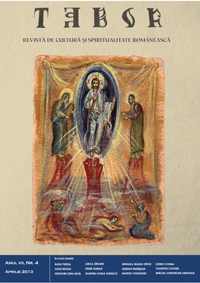Primatul papal, încotro?
Papal Primacy: Where To?
Author(s): Grigore Dinu MoşSubject(s): Christian Theology and Religion
Published by: Renaşterea Cluj
Keywords: papal primacy, infallibility, church, authority, synodality
Summary/Abstract: Papal primacy and Filioque, the main causes behind the Great Schism, are interdependent in the prism of historical evolution and scheme of thought: the dissociation of the principle of the unity within Trinity is analogous to the hypostatic dissociation of the concept of unity within the Church (Christ and the pope); similarly, in the method of scholastic theology, there is a certain presumption of infallibility (of reason), all of these being the expression of a pneumatological minimalism embodied in the doctrine of created grace. The patristic hermeneutics of the “stone” in Matthew 16:18 (used by the Catholic Church when trying to justify papal primacy) can be reduced to the following: the stone on which the Church is built = Christ = the faith and the confession of the faith in the divine nature of Christ = Peter (the fi rst to have confessed the divine nature of Christ) = the Apostles (on whose behalf Peter spoke; they being confessors and guardians, along with Peter, of the true faith) = bishops = believers. These are dynamic equivalences, based on the logic of humility, bestowment and love, without the ability to self-assess any primacy of divine validation. The fi nal sense of “the Stone” was, is, and will be Christ, God and Man alike. In other words, in Church, primacy (as an act of honoring) depends on the orthodoxy of faith, not vice versa. The doctrine of primacy and papal infallibility constitutes a disjunction from the tripartite structure of the church, a deadly ecclesial malady, upon which the healing work of the Holy Spirit is yet increasingly active. During the Ravenna Agreement (2007), an important step has been made in the reception of the mutual ecclesiology of the fi rst Christian millennium, but some Orthodox theologians have noticed in this agreement certain infl uences of the Roman-Catholic ecclesiology. In essence, the attempt to disjoin authority from synodality at a universal level or to separate them in order to make room for the papal primacy does not belong to the Orthodox tradition because, inside the institution of the ecumenical Synod, authority and synodality overlap perfectly, which excludes the need for the Roman primacy as a different institution for authority
Journal: TABOR. Revistă de cultură şi spiritualitate românească
- Issue Year: VII/2013
- Issue No: 04
- Page Range: 30-43
- Page Count: 14
- Language: Romanian
- Content File-PDF

